Last Updated on 14/10/2025
Renowned as a culturally diverse country and also the country with the highest economic rate, China celebrates a number of auspicious festivals including some traditional, and some are segregated as cultural festivals. Participating in the grand celebration of these festivals leaves a traveler and also the locals astonished with its charm and fun. The annual events and the traditional festivals will bring a new story to your life as they showcase the real traditional Chinese culture. These grand occasions are celebrated according to the dates of the Lunar Calendar what Chinese follows. It will be much true to say that the Chinese festivals represent beautifully the morality of the nation and also the traditional practices with their uniqueness in customs and also the origination. Continue reading the post to know about some really important festivals in China.
1. New Year Festival
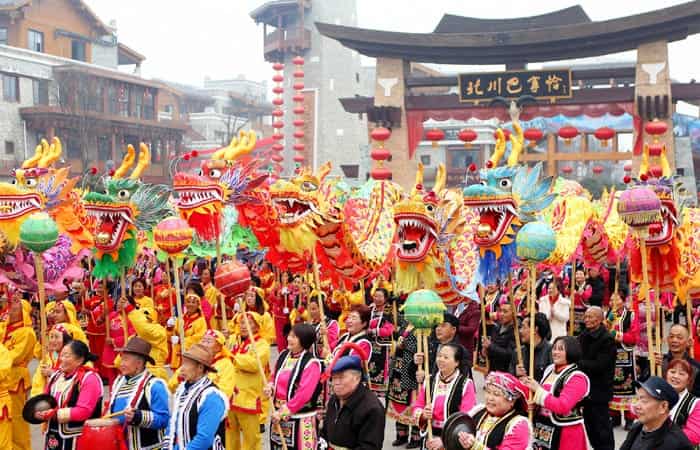
Also called as Spring Festival, this is one of the most famous and important festivals in Chin. It is believed that the Chinese have been celebrating this grand festival for a long time. The celebration of the New Year festival continues for 15 weeks which starts according to the Lunar calendar. The festival commences in the first lunar month and on the first lunar day. Everyone decorates their houses, shops, and other buildings with flowers and colorful lights and red are believed to be the main color of this festival. Reunion dinner is a major attraction and the main celebration ceremony of this festival where the entire family members sit together and enjoy the dinner.
2. Yuan Xiao Festival
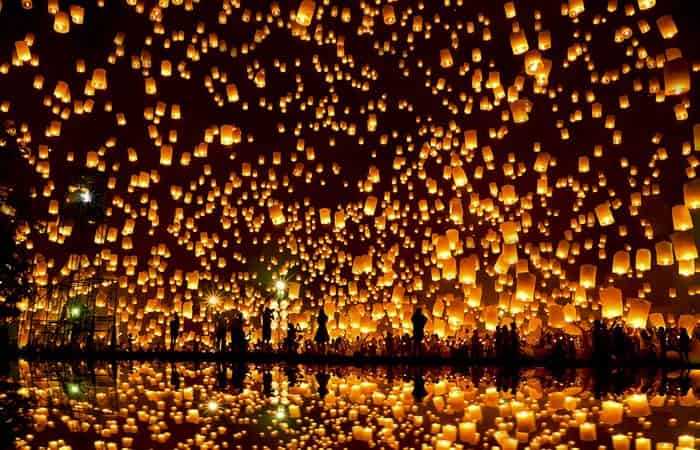
Also known as the traditional lantern festival in China, Yuan Xiao Festival is the second most important and auspiciously celebrated festival in the country after the Spring Festival. The festival is celebrated exact on the 15th day of the celebration of the Chinese New Year Festival. In this festival, the entire country is adorned beautifully with colorful lanterns of varied sizes, colors, and shapes. The country looks so stunning and admiring during the nighttime with the charm of colorful lit up lanterns.
3. Mid-Autumn Festival
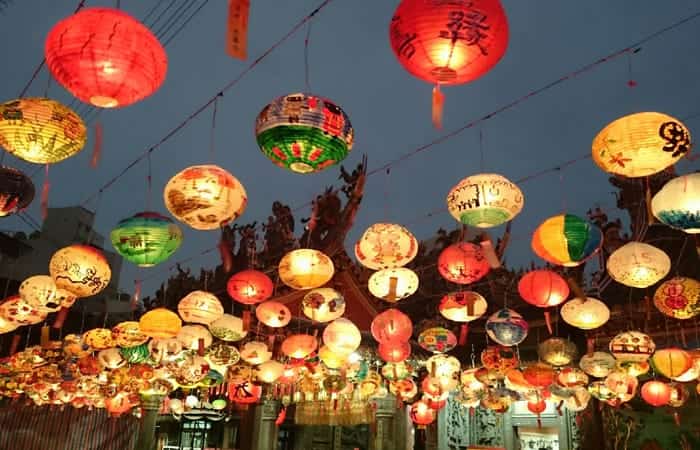
This festival comes third in the list of major festivals in China. The celebration of this festival represents family union and is dedicated to the worship of the moon. Government of China declares a traditional holiday on this festival which is somewhat likewise Thanksgiving Day. Delicious moon cakes are a major attraction and also the main feast of this festival. There is a ritual to get the full moon sight with all the members of the family and to seek the blessings of the moon for their harmony and luck.
4. The National Day of China
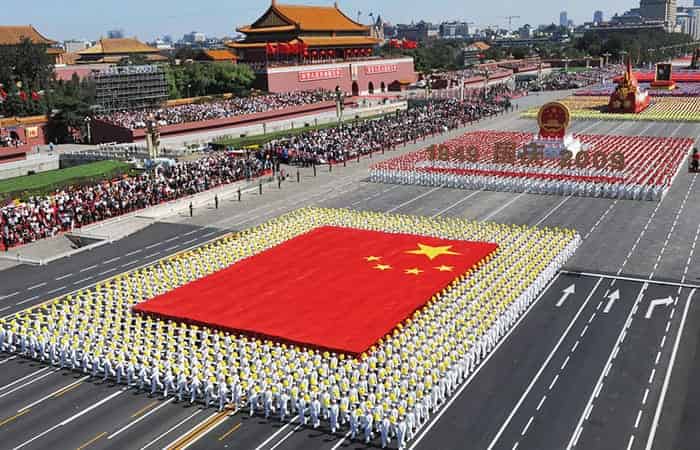
This day is celebrated in the honor and the remembrance of the formation of the People Republic In China in the year 1949. The National Day of China is inarguably believed to be one of the most important celebration days in the country. The government of the country organizes various activities on this festival including fireworks and concerts in which thousands of people take part and make them a great success. Hong Kong, mainland China, and Macau celebrate this festival in an auspicious way on 1st October every year. The celebration continues for 1 week and so also called “golden week”.
5. Duanwu Festival
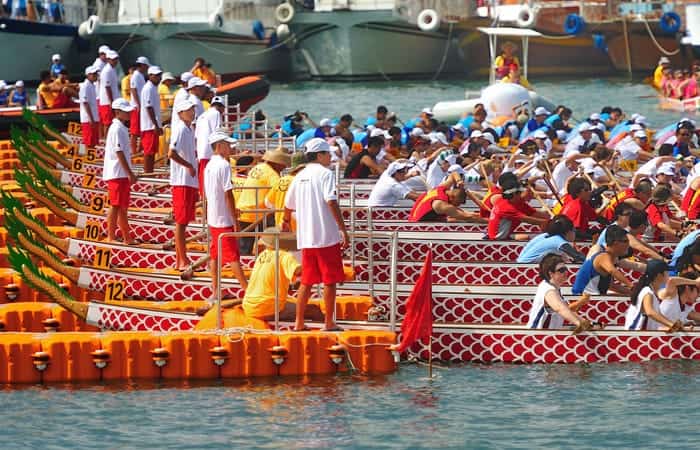
Another ancient festival celebrated in China with great enthusiasm every year in which thousands of people participate joyfully. Duanwu Festival is also called as Dragon Boat Festival as the main attraction of this festival is the dragon boat race which witnesses a huge number of participants. It is celebrated in a more grand manner in the southern regions of the country. None of the festivals in China is complete without a delicious dish and likewise, Zong Zi is the main feast of this festival which is a must try dish in China made with glutinous rice wrapped in the leaves of a reed.
6. Chongyang Festival
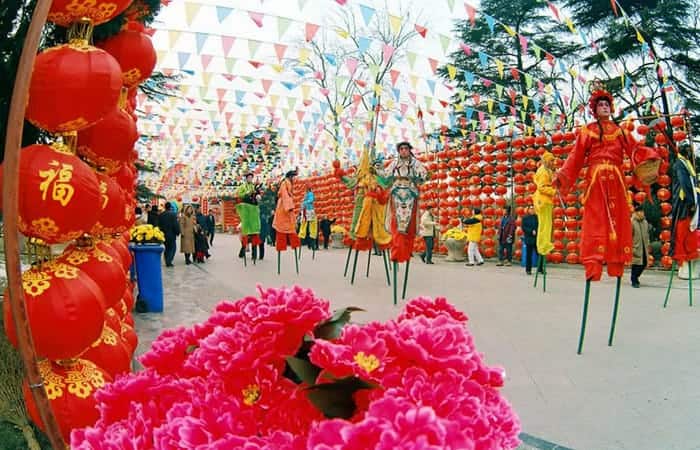
Also renowned as the Double Ninth Festival, Chongyang festival is a festival celebrated with eating Chongyang Cake and also by drinking Chrysanthemum wine. This major festival is celebrated very promptly in the whole country but in some parts of China, it is celebrated in a more auspicious manner. In some of the regions of the country, people like going for adventurous activities like mountain climbing where they enjoy the activities more with chrysanthemum.
7. Qingming Festival
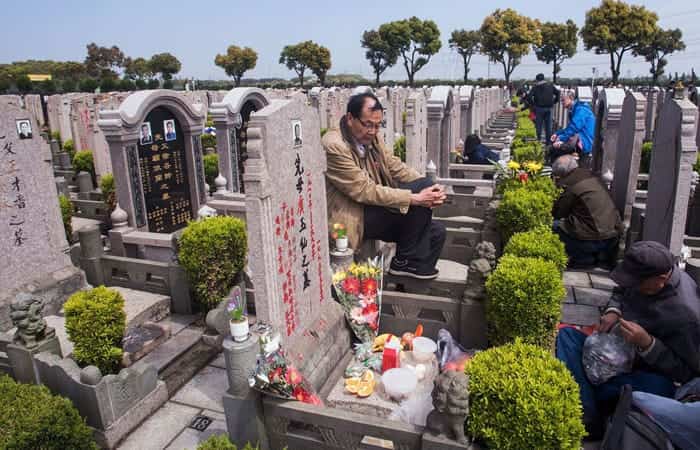
Also called as Tomb Sweeping Day, Qingming Festival is celebrated in China to showcase the sacrifices on this day in the form a festival. On this emotional day, people of Hans and other groups gathered at the graveyard or the tombs of their ancestors and sweep them nicely. They show their love and respect to the souls of those who are now no more a part of their life. It is pretty similar to the celebration of All Soul’s Day which is organized in India by the Christians every year on the 2nd of November. Most of the Chinese go for a picnic to have some fun with their family and friends.
8. Qixi Festival
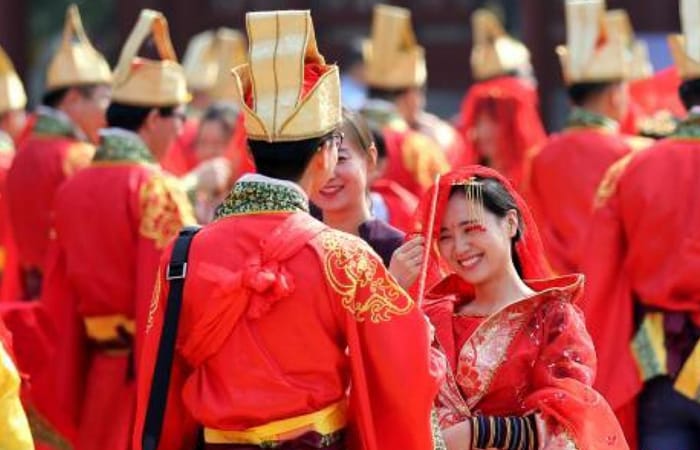
An interesting and entertaining festival celebrated in the country where all the girls show their talent of art, handicrafts, and also pray for the best soulmate for themselves. Do not mistake it, it is not only a festival of girls but is also celebrated auspiciously by boys where boys send flowers to the girls whom they want to be their life partner. The festival has been renamed recently as “China’s Valentine’s Day”. It comes in the category of a traditional festival in which newlyweds or young couples go out shopping together. It is celebrated as a fun festival by the youngsters in which they spend some beautiful time with their peers.
9. Labor Day
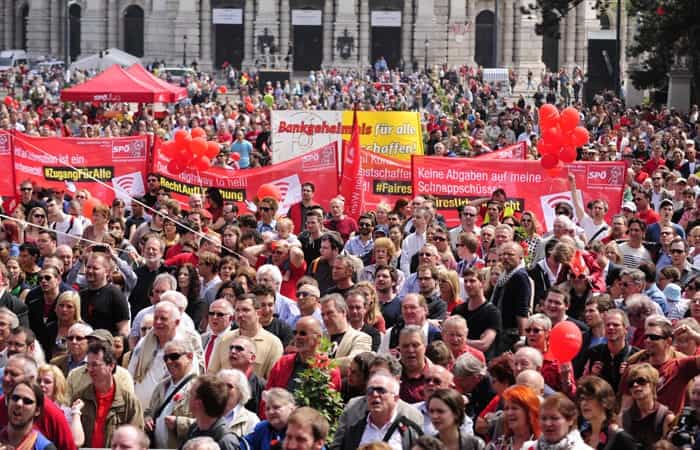
Also called as May Day and International Worker’s day, Labor Day is celebrated in China with great enthusiasm and pomp. This grand festival is celebrated in almost more than 80 countries all across the globe. This festival was started by the council of Central People’s Government in the year 1949 and declared 1st May as International Labor Day. Different activities are organized for entertaining the citizens of the country, for example, public squares, theatres, and parks. For the entire day, different activities are organized and then later in the evening, parties are organized in the government offices in which they invite some really popular laborers as chief guests.
10. Winter Solstice Festival
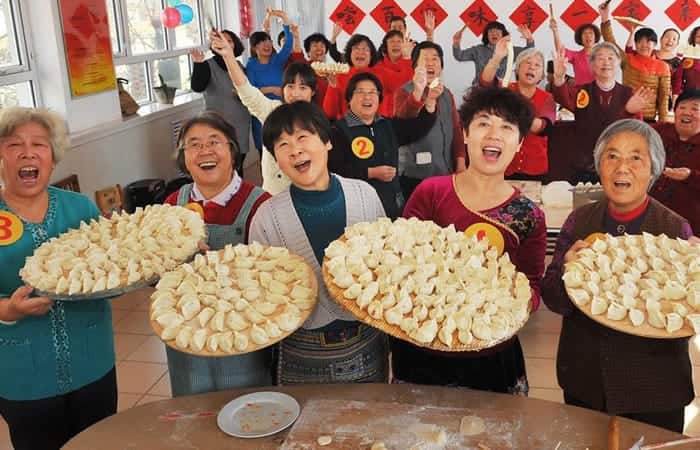
The festival celebrated on the longest night day or the shortest day in the regions located in the northern hemisphere. Also called as Dongzhi Festival, this traditional festival is celebrated with great pomp and joy. Winter Solstice Festival holds a great historical significance and it is celebrated with numerous interesting customs and rituals. On this auspicious day, some of the Chinese families gather and sit together to enjoy the special meal of the day. They also pay respect to the departed souls of their ancestors and also visit their tombs.
11. Hungry Ghost Festival
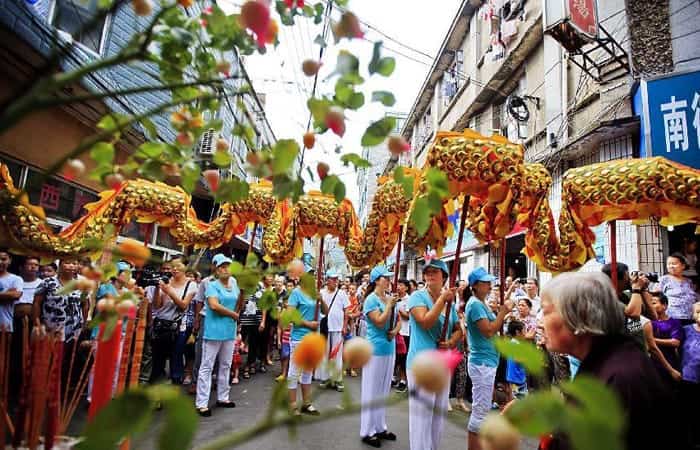
Likewise other countries, Chinese are also known for performing certain special customs and rituals to provide peace to the souls of their ancestors. Daoism which is a very famous religion in the country performs certain rituals with a belief to deal with the errant ghosts in the region. This unique festival is held in the seventh month of the lunar calendar and on its 15th day. The puja ceremony is generally performed at dusk in which they keep the belongings and other puja items on the table. According to an old custom Chinese are required to cook meals thrice on that day and they leave a place on the dining table with a belief that the ghosts of the ancestors will come and feed himself.
12. Summer Solstice Festival
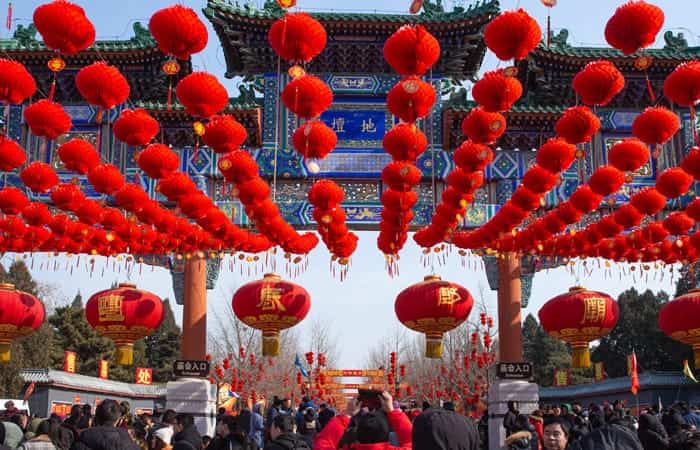
Likewise, winter solstice Festival Summer Solstice is also related to astronomy. The festival is held on the longest day of the year i.e. 21st or 22nd of June every year according to the Gregorian Calendar. There is an interesting thing to observe on this special day, in the northern part of the country, the daytime is very much longer than night but if we see in Southern China then there is a difference of only 2 hours. Government declares this day as a national holiday and so people are free to spend their time as they wish to do but noodle eating is quite common on that day. On this day markets and even the streets are also filled with the stalls of noodles. Some people also call it a new wheat festival and the noodles on this day are also made with wheat only.
Suggested to Read:













 Call
Call WhatsApp
WhatsApp Enquiry
Enquiry